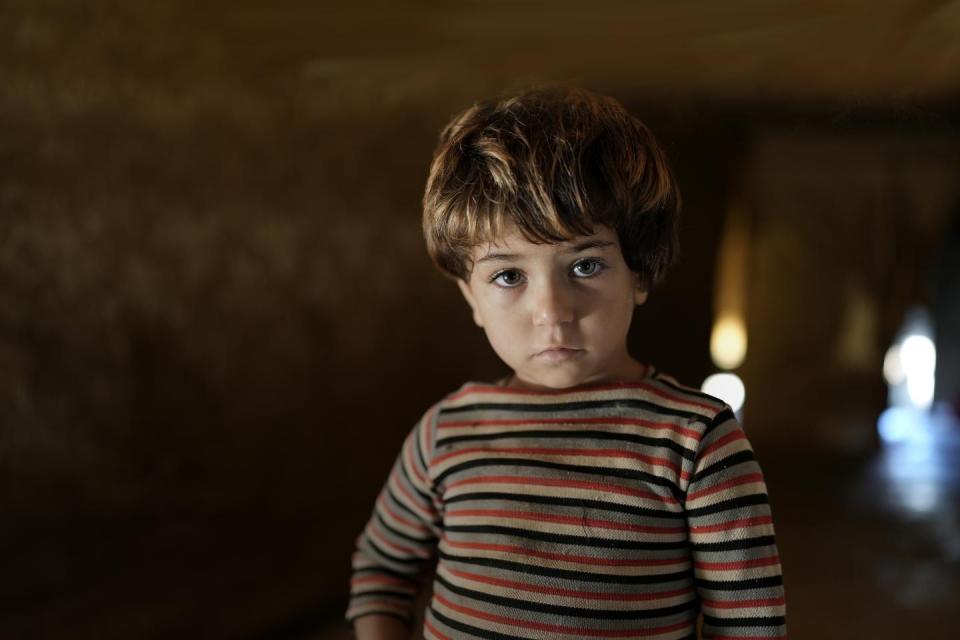We Communicate For Happy Children
 ANECD Update #20 - Surviving without basics: The ever-worsening impact of Lebanon’s crisis on children
ANECD Update #20 - Surviving without basics: The ever-worsening impact of Lebanon’s crisis on children 
Country:
Lebanon
Lebanon is still suffering from a multi-dimensional crisis whose effects seem likely to increase and last, which will exacerbate its impact on the Lebanese, refugees, children, and other vulnerable groups and communities residing in Lebanon.
Living conditions
The lifting of subsidies and the complete liberalization of fuel prices led to an unprecedented socioeconomic catastrophe.
Between September and October 2021, the gasoline prices jumped from an increase of 400% to 450%, and the generators diesel from 500% to 650%.
The value of the minimum wage per month decreased from $33 to $27. The inflation rate increased from 146% to 174% during the same period. The purchasing power of the Lebanese pound has lost 95%, and depositors’ accounts in banks have lost 85% of their value so far.
All this led to the exacerbation of poverty, which now affects 74% of the total population.
A study of the United Nations Economic and Social Commission for Western Asia (ESCWA)(1) indicates that if we consider broader dimensions of social income, such as health, education, and public services, the percentage of people living in multidimensional poverty will reach 82% of the population.
This is accompanied by more than 600 thousand emigrations in recent months, most of whom are highly qualified. Unemployment has reached 35% of the workforce. The World Bank, the European Union, and the United Nations Women’s Authority about women in Lebanon indicated that 75% of women have become economically inactive and that unemployment among women in the labor market is constantly increasing.
The medical sector
The spread of the COVID19 pandemic and the economic downfall led to the health system collapse, which was not based on public health imperatives in the first place.
In return, this led to its inability to respond to the requirements of protecting the population’s health, especially after the collapse of the public health sector, the depletion of its absorptive capacity, and the service reduction of the private-sector health institutions.
The ESCWA study found that the proportion of families deprived of health care has increased to 33%. The percentage of families unable to obtain medicines increased to more than 50% after the prices of medicinal drugs increased between 400% to 1000%, and the “World Food Program” announced that the inflation in food prices rose by up to 557%, which has become a threat to food security.
As for most hospitals, they are operating at 50% of their capacity. It is expected that 30 hospitals will cease to function by the end of this year, and about 40% of doctors and 50% of nursing staff have emigrated.
The educational sector
The crisis is pushing poor families to not enroll their children in school and forcing them to the work market to help improve the family’s living conditions, which has led to a high number of school dropouts, with 700,000(2) boys and girls now out of school.
A UNICEF study(3) also shows that primary school enrollment for refugee children fell by 25% in 2021, and 30% of refugee children had never attended school. The wave of emigration and the drop in salaries hit the educational staff, as 17% emigrated.
Waste and pollution
The increase in the use of diesel generators to compensate for power outages has caused air pollution to rise 8 times more than it was previously, as toxic gas emissions have increased by 300%.
Waste is accumulating in the streets, with an increase in the proportion of toxic substances that are emitted from burning them as a result of the absence of collection services, which will lead to a rise in the number of people suffering from cancer, cardiovascular diseases, neurological disorders, strokes and developmental disorders in children.
The new report from UNICEF shows that hundreds of thousands of children in Lebanon are at risk. They go to bed hungry, are not receiving the health care they need, and cannot attend school.
The future of an entire generation of children is at stake as Lebanon struggles simultaneously with one of the world’s worst economic depressions in modern history, the COVID-19 pandemic, and the aftermath of the massive August 2020 Beirut Port explosions. In addition, Lebanon has the world’s highest proportion of refugees per capita.
